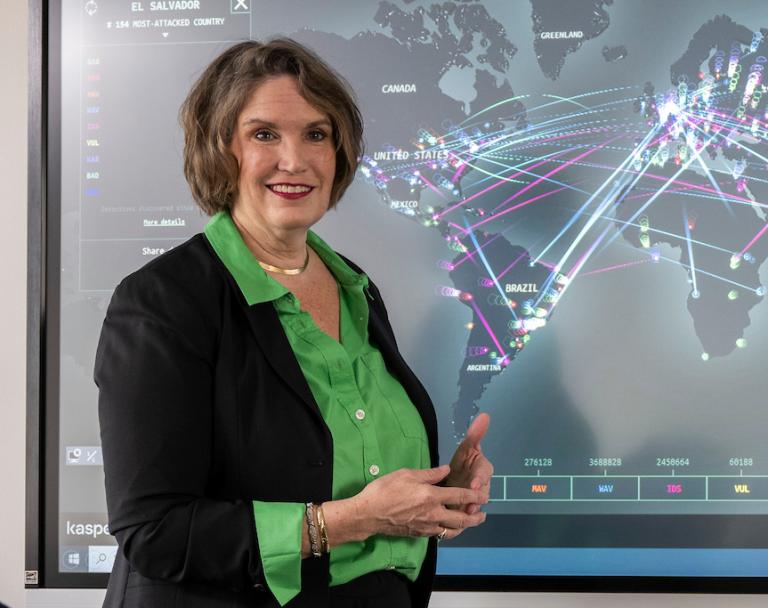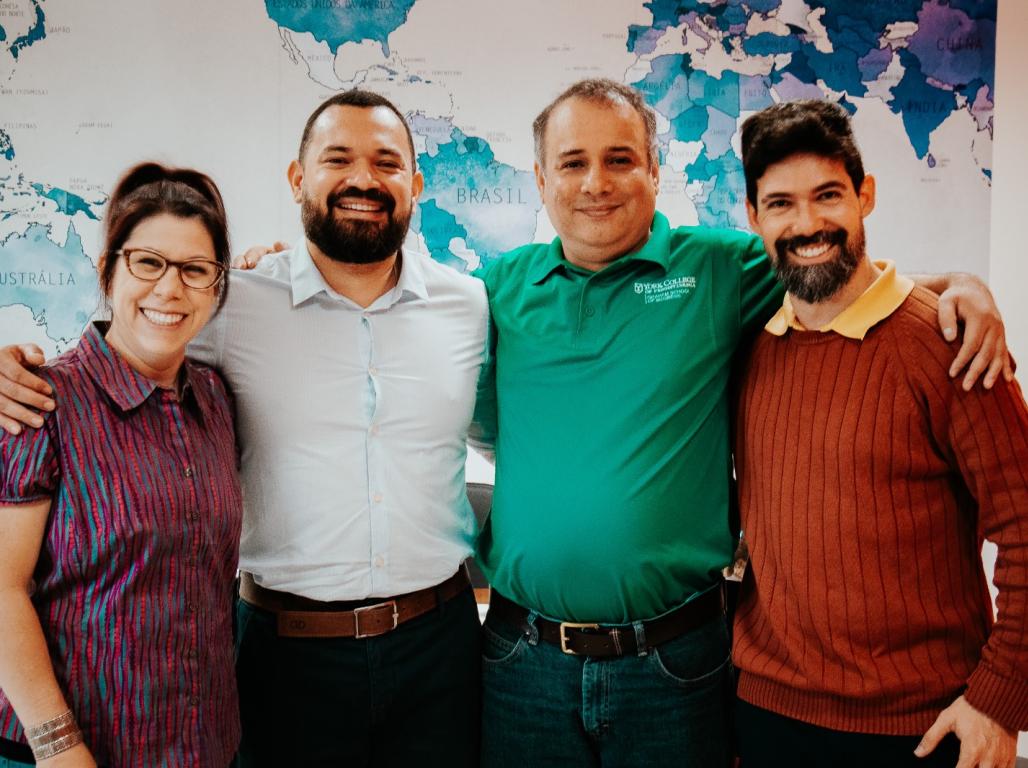Dr. Tamara Schwartz Helps Lead the Fight Against the Ultimate Hacking Attack

In August, the Associate Professor of Cybersecurity at York College of Pennsylvania participated in ConnectCon, a closed-invite think tank on cognitive security in Las Vegas.
The most harmful hacking attack against any nation uses tools to manipulate information, which then is disseminated to shape people’s opinions. Ultimately, these attacks can tear down a society.
Plagues such as phishing, scams, pseudoscience, and disinformation intended to sow discord all feed off human nature. They’re what Tamara Schwartz, DBA, Associate Professor of Cybersecurity and Strategy at York College of Pennsylvania, calls threats to the cognitive terrain. Fighting that type of information warfare has been a primary focus of her career.
On Aug. 9, 2024, Dr. Schwartz attended the ConnectCon think tank at the University of Nevada, Las Vegas, where she gathered with peers to discuss the growing importance of cognitive security in today’s digital world. The event, hosted in conjunction with Black Hat USA and DEF CON, two of the largest and most influential cybersecurity conferences in the world, brought together 60 invitees to discuss how misinformation and manipulation of human decision-making pose critical global threats.
ConnectCon invitees included experts in artificial intelligence, cognitive neuroscience, psychology, engineering, video gaming, and cybersecurity, among other fields. This multidisciplinary gathering, sponsored by the National Institute of Standards and Technology, highlighted the increasing urgency to address cognitive security and protect humanity from psychological manipulation and misinformation.
An old problem with a new twist
Cognitive security is not a new concern. Dr. Schwartz points to warnings in 1941 by Nelson Rockefeller, coordinator of inter-American affairs at the U.S. State Department, about the use of propaganda in psychological warfare. Long before AI was a reality, the man who eventually would serve as vice president under President Gerald Ford warned that “a new geography of defense” was needed to fight the Nazis’ psychologically manipulative propaganda intended to destroy the idea of democracy.
Dr. Schwartz says modern technology has dramatically amplified the threat. ConnectCon marked a milestone for this community of experts, who traditionally have collaborated online. Invitees worked in small groups to discuss cognitive exploits and potential cultural solutions, focusing on protecting individuals and governments from manipulation.
After the event, Dr. Schwartz agreed to join the board of directors of the Cognitive Security Institute, which helped organize the event. Her involvement will create opportunities for York College students to connect with experts in cybersecurity, AI, cognitive neuroscience, and an array of other fields in the cognitive security sphere.
Training the next generation
For Cybersecurity Awareness Month in October, Dr. Schwartz stresses the importance of individual vigilance. She advises people to avoid acting on impulse, especially during an election year, and urges them to verify information from trusted sources rather than rely on potentially manipulated online content.
“Be aware of your surroundings. Think before you click on a button,” she says, pointing out that politically oriented emails and texts often contain fake links and information.
York College’s Cybersecurity Management program, under the direction of Dr. Schwartz and James Norrie, DPM, Professor of Cybersecurity, Strategy and Entrepreneurship, addresses cognitive security by developing a generation of professionals who understand how information impacts decision-making and how new technologies will shape the future.
“Cybersecurity is much more than a technical problem,” Dr. Schwartz says. “We’re focused on the human side of it. We’re growing the people who are going to direct the technical side of things.”
As cognitive security becomes a more pressing concern, Dr. Schwartz is committed to protecting society from misinformation and manipulation while training the next generation of human-focused cybersecurity leaders.




